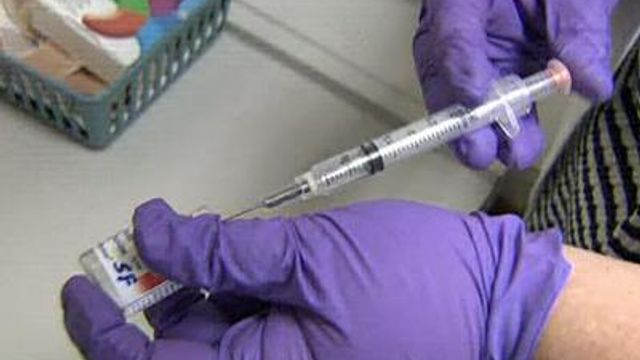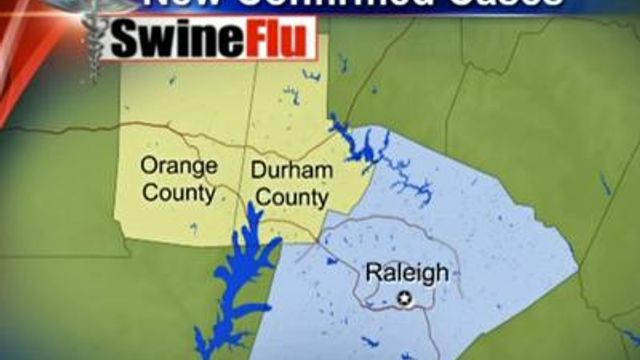Health Team
Vaccine for H1N1 in development
Every flu season a vaccine is available to control the spread of the illness. But the current H1N1 virus has been spreading without a vaccine to control it.
Posted — UpdatedCHAPEL HILL, N.C. — Every flu season a vaccine is available to control the spread of the illness. But the current H1N1 virus has been spreading without a vaccine to control it.
Doctors say H1N1 or swine flu will infect 5 to 10 percent of the population this summer. The number of those affected is expected to be higher in the fall and winter. Experts hope a vaccine will be available by then.
“I don't think we'll probably know at least for one or two months when the novel H1N1 vaccine will be available,” said Dr. David Weber, an infectious disease specialist at UNC.
Weber said the vaccine would be given in two doses one month apart and separate from the seasonal flu vaccine.
For now, Weber said 98 percent of people testing positive for influenza A have H1N1.
“People who have a clear influenza like illness with fever over 100.4, sore throat, runny nose and cough almost certainly have the novel H1N1,” Weber said.
Testing for flu is done in at UNC labs. Rapid flu tests done in most doctor's offices and clinics are fairly reliable for seasonal influenza, but the same test is not reliable for the H1N1 virus.
UNC microbiologist Dr. Melissa Miller said their labs offer testing for H1N1 similar to the state labs.
“It's the best test for diagnosing the H1N1 virus that's currently circulating. It takes approximately three to four hours from the time we get the specimen ‘til we have a result,” Miller said.
• Credits
Copyright 2024 by Capitol Broadcasting Company. All rights reserved. This material may not be published, broadcast, rewritten or redistributed.






